Printable Future Simple Passive Exercises - 101 PDF Worksheets with Answers
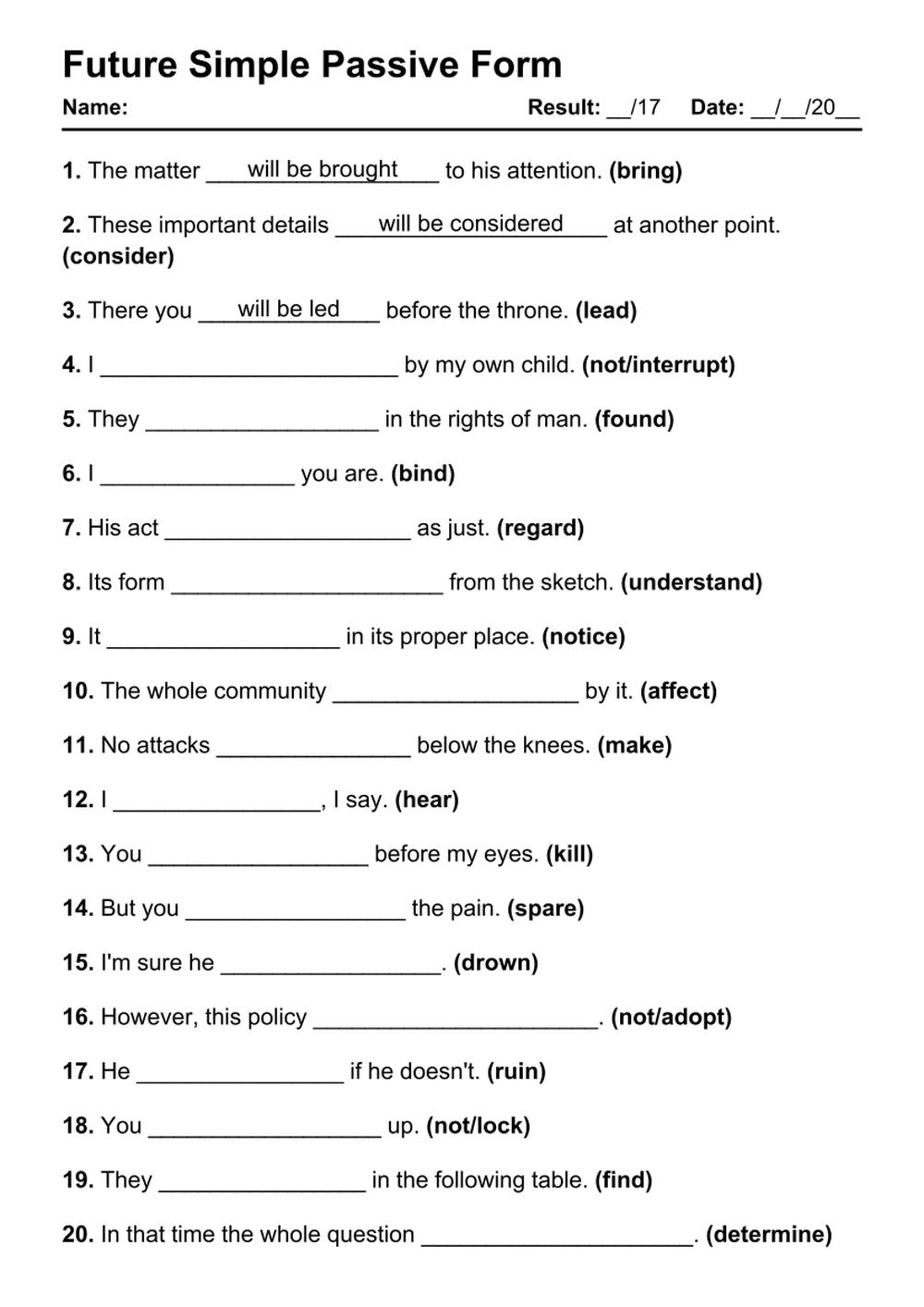
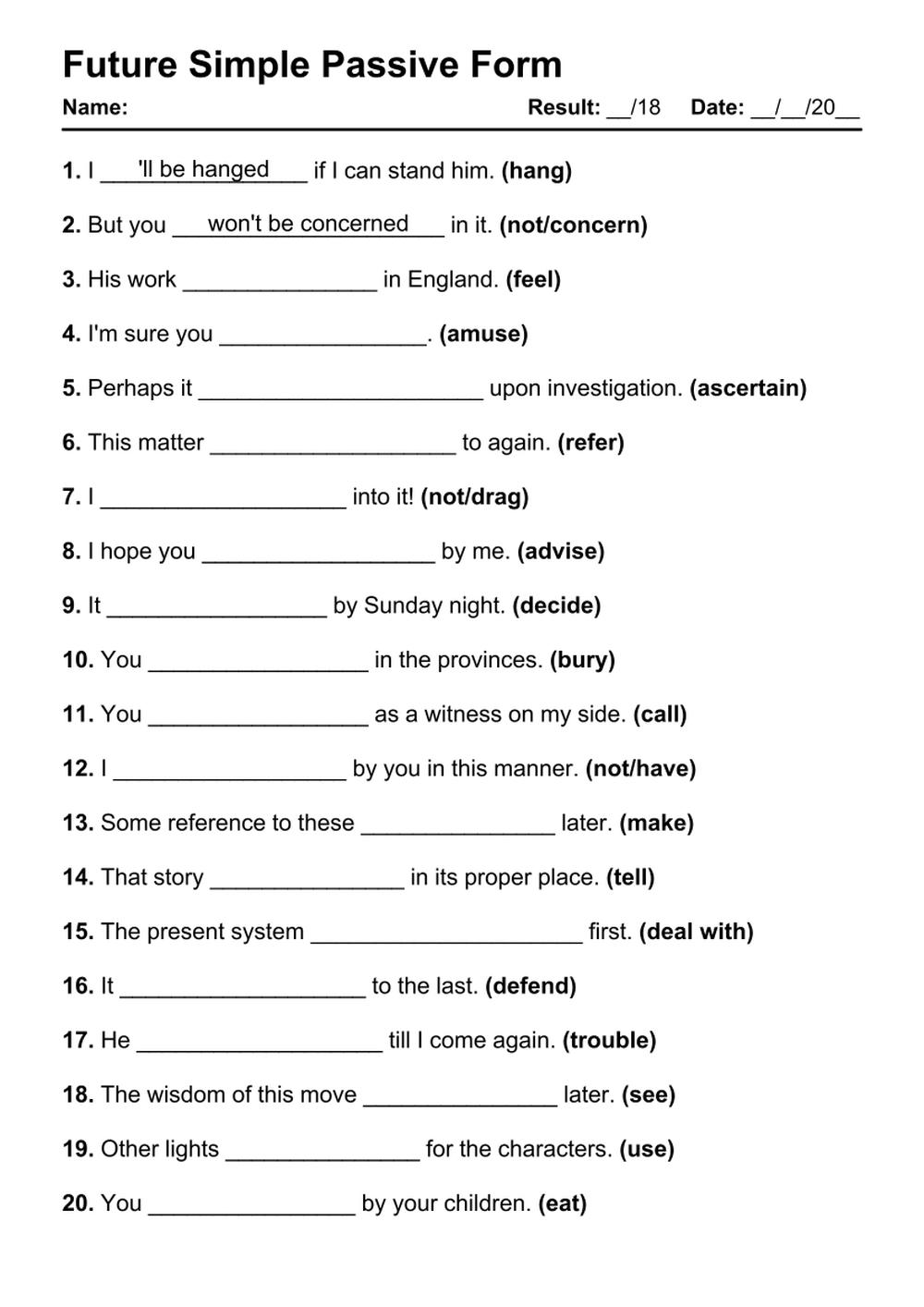

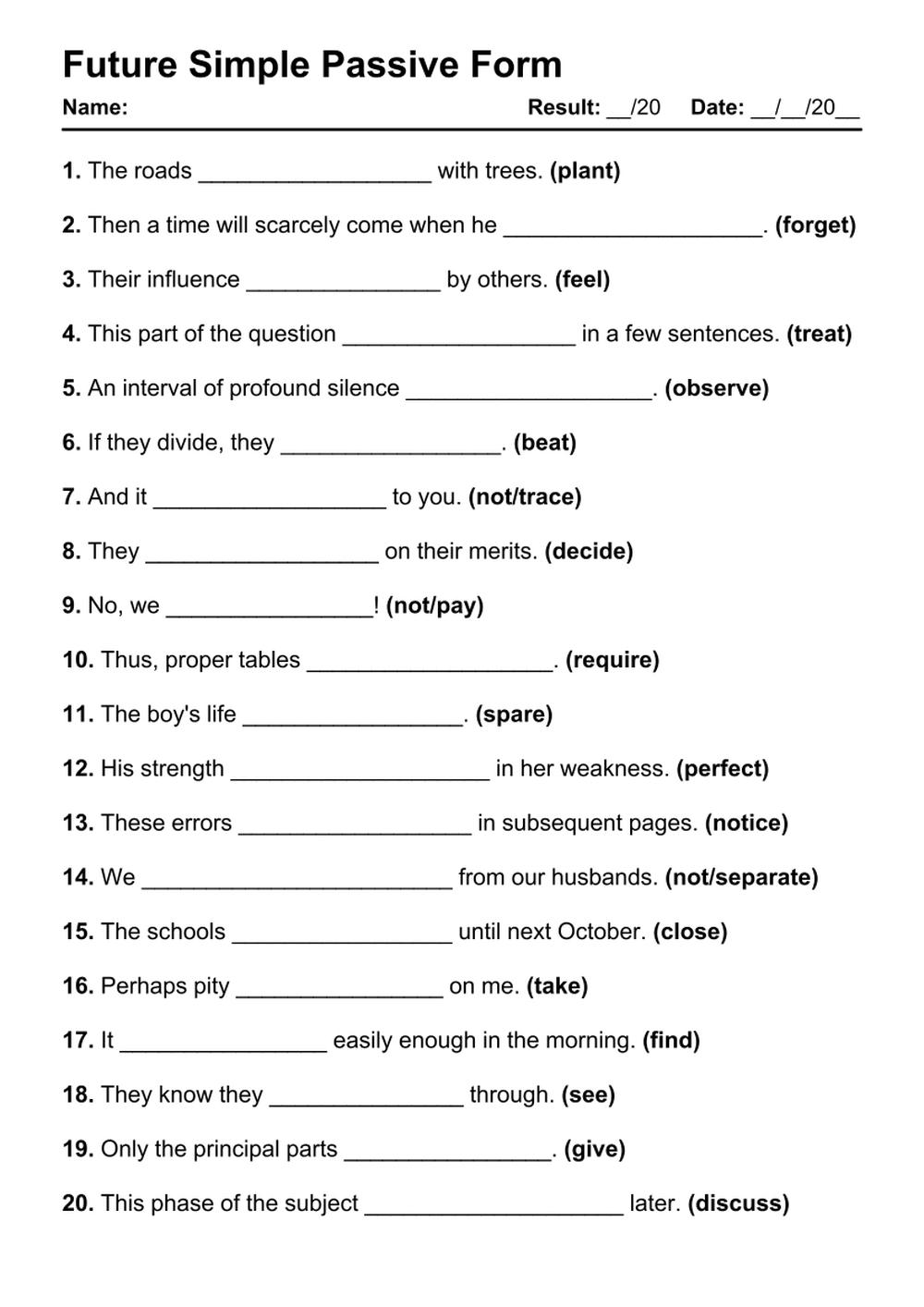





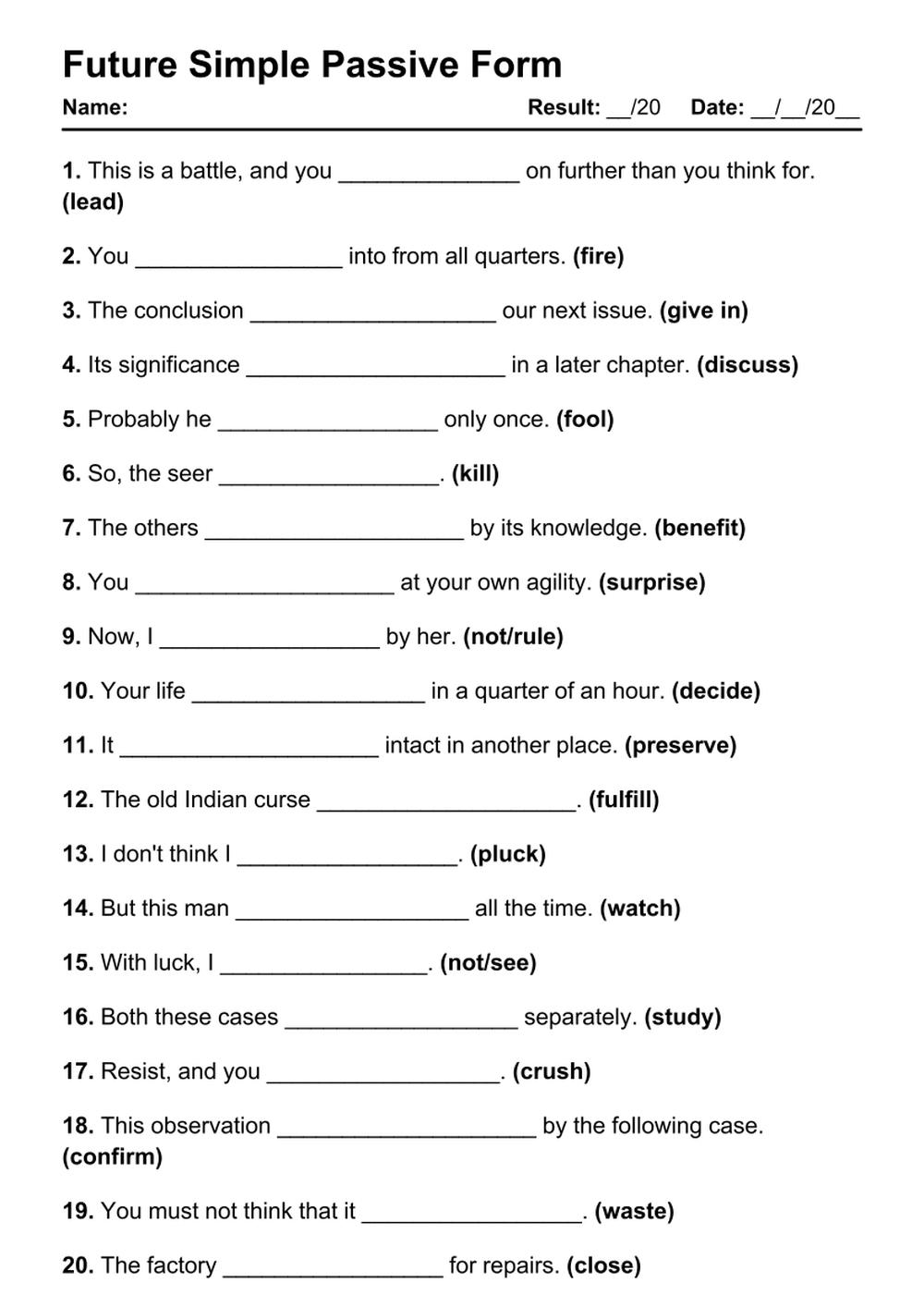

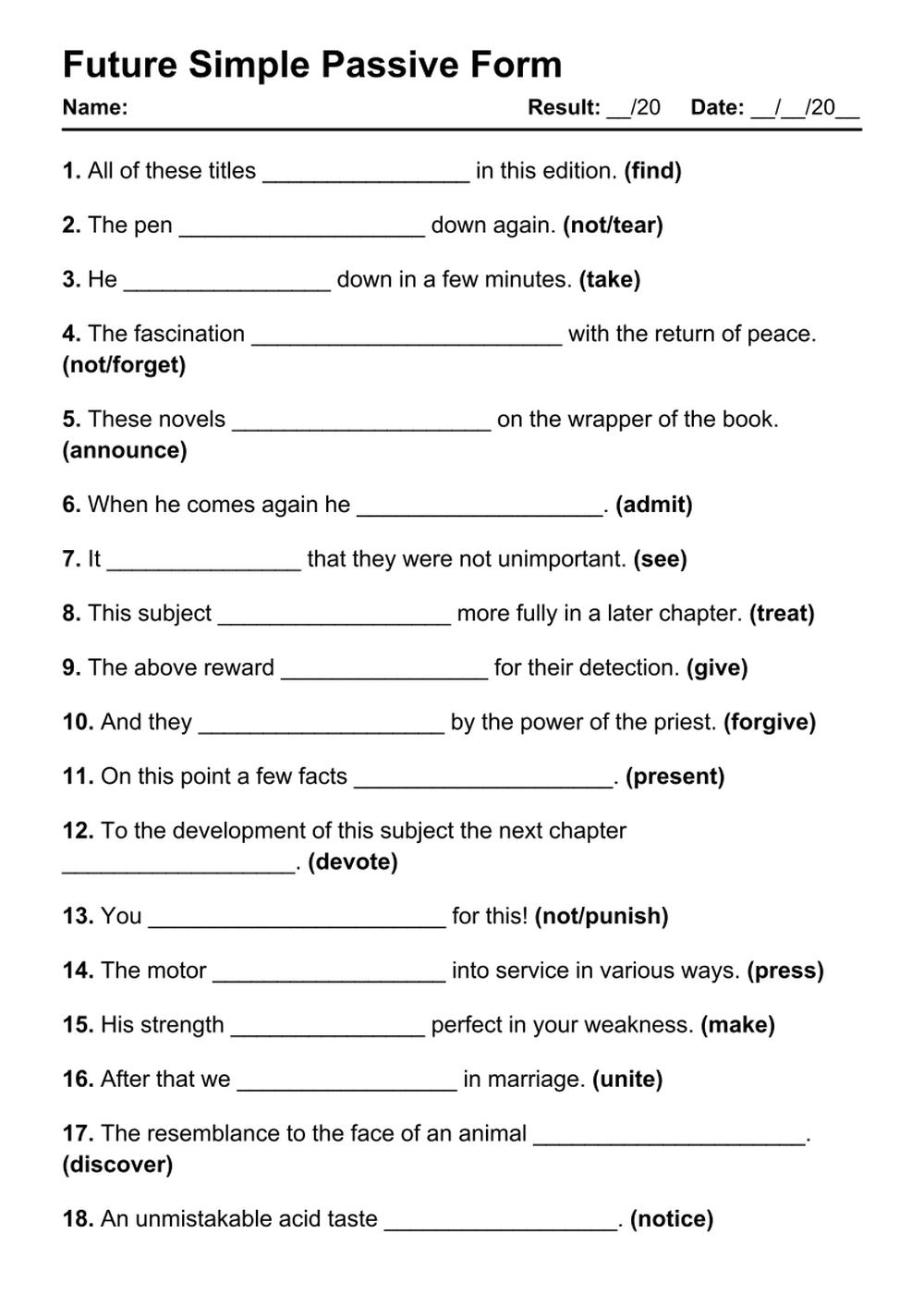


































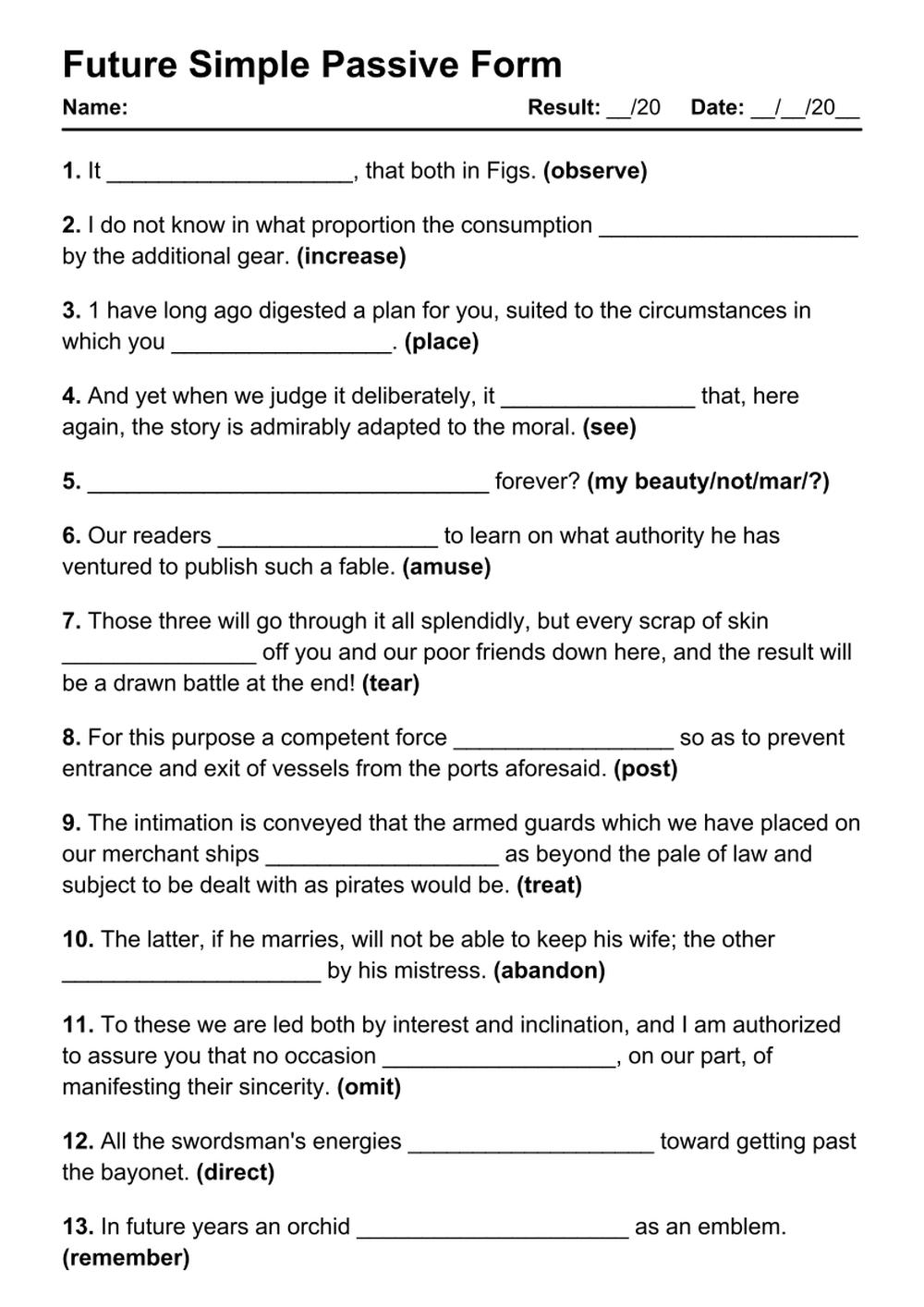


































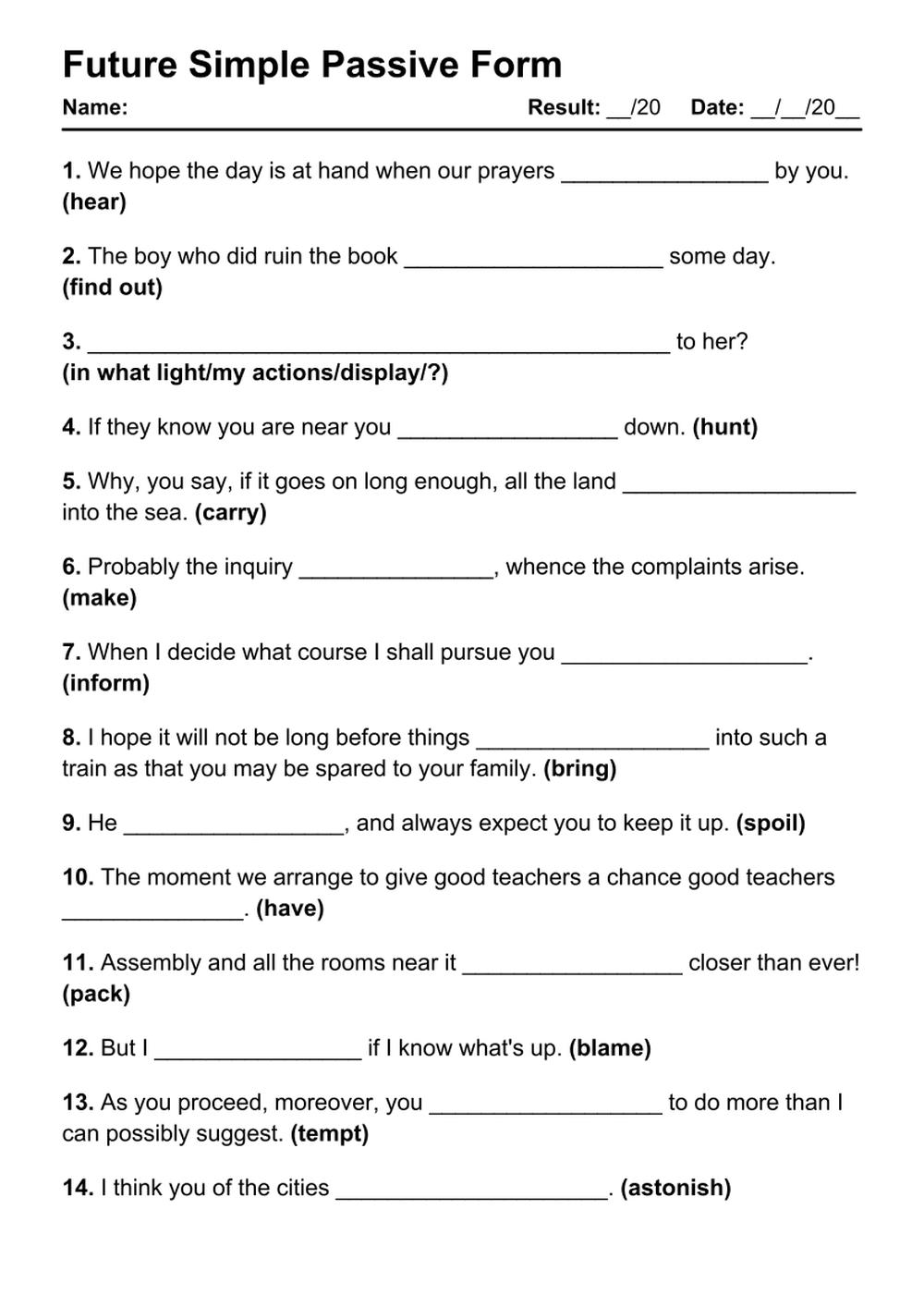



















Future Simple Tense (will) Passive Voice Printable PDF Worksheet Tests with Exercises and Answers
Access a collection of 101 printable PDF worksheets focusing on the English grammar topic of the future simple passive. Download fill-in-the-blank tests with exercises and answer keys for future simple tense (will) passive voice to print for free. The activities in the sheets are suitable for kids, adults, ESL learners at the beginner, elementary, and intermediate levels to practice English grammar.
Related Pages
- Future Simple Passive Online Exercises
- Future Perfect Passive PDF Worksheets
- Future Simple PDF Worksheets
- Future Simple Negative PDF Worksheets
- Future Simple Positive PDF Worksheets
- Future Simple Question PDF Worksheets
- Passive Voice PDF Worksheets
- Past Continuous Passive PDF Worksheets
- Past Perfect Passive PDF Worksheets
- Past Simple Passive PDF Worksheets
- Present Continuous Passive PDF Worksheets
- Present Perfect Passive PDF Worksheets
- Present Simple Passive PDF Worksheets

 Bundle
Bundle Worksheet
Worksheet
 Save
Save